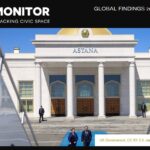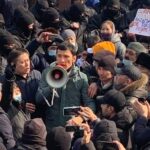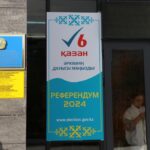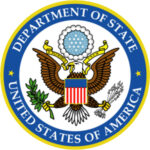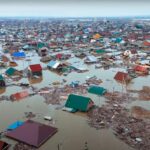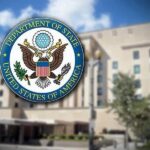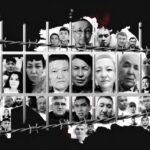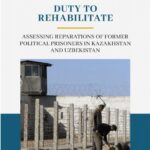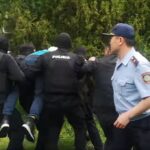Reports of torture and other ill-treatment by security forces continued unabated, despite government claims that it was successfully addressing these violations. Security forces used excessive force to break up large-scale protest strikes by oil and gas workers and detained dozens of protesters and their supporters, as well as trade union and opposition activists. At least 16 people were killed during clashes between protesters and police in December. A trade union lawyer was sentenced to six years in prison for allegedly inciting social discord during the strikes. The authorities forcibly returned asylum-seekers and refugees to China and Uzbekistan despite international protests and interventions by the UN.
In April, President Nursultan Nazarbaev won uncontested elections with over 95 per cent of the vote. The OSCE concluded that the vote had been marred by “serious irregularities”. Shortly afterwards, the President announced his intention of creating a two-party parliament and, in November, he dissolved the one-party parliament and called early elections for January 2012.
The authorities stepped up counter-terrorism operations targeting unregistered or banned Islamic groups and Islamist parties and organizations following an unprecedented number of bomb explosions, suspected suicide bombings and violent attacks by unidentified armed groups throughout the country. At least 35 people, including security forces and civilians, were killed during these violent incidents which the authorities described as terrorist attacks by illegal Islamist groups. Human rights groups claimed that the authorities used these alleged threats to national security to tighten state control over religious groups. In October, a new law imposed strict regulations on religious organizations, making it compulsory for them to re-register with the state within 12 months or face closure. All mosques were required to come under the authority of the state-controlled Muslim Board or would be outlawed.
On 16 December, in the worst confrontation in recent history, celebrations of the 20th anniversary of Kazakhstan’s independence in the south-western oil city of Zhanaozen were marred by violent clashes between protesters and police. At least 15 people were killed and more than 100 seriously injured. One protester was killed later in a separate incident. Officials reported 42 buildings burned down or destroyed, including the town hall. The President imposed a 20-day state of emergency in Zhanaozen, sent in military reinforcements and set up a special commission to investigate the violence. All communications with the town were temporarily cut off. The President, who visited the city on 22 December, blamed the violence on “young hooligans” who had taken advantage of the dissatisfaction and anger of the striking workers to destroy and loot public and private property. He said security forces had acted strictly within the law. However, the Prosecutor General’s Office opened a criminal investigation into the use of force by security forces after video footage of the events was released. It also invited the UN to join an impartial investigation into the violence.
Torture and other ill-treatment
In July, the UN Human Rights Committee discussed Kazakhstan’s report on implementing the ICCPR. It regretted that Kazakhstan had not made more progress in eliminating torture and questioned the political will of the authorities to fulfil their commitments, especially in initiating effective investigations into allegations of torture or other ill-treatment. In the same month, in a retrograde move, the President signed a decree authorizing the transfer of the prison system back to the authority of the Ministry of Internal Affairs, thereby defeating years of reform efforts by government and NGOs. Access by public monitors to prisons and pre-trial detention centres had greatly improved since their transfer to the authority of the Ministry of Justice in 2004. In contrast, access to police cells and other places of detention under the authority of the Ministry of Internal Affairs remained problematic and most allegations of torture continued to be received from there.
- Nikolai Maier, aged 21, and four of his friends were reportedly attacked by 15 police officers while they were sitting in the courtyard of his apartment block in Rudni on 25 July. Eyewitnesses stated that the police officers hit the young men with rubber batons and kicked them. Nikolai Maier lost consciousness. All five men were then detained at the police station. Nikolai Maier was charged with endangering the life and health of law enforcement officers. The following morning, Nikolai Maier was taken to hospital and diagnosed with concussion, and head, eye and thigh injuries. He was placed under house arrest. Despite medical evidence and numerous complaints from his family and their lawyer, the Prosecutor’s Office made no investigation into the allegations of torture and ill-treatment by the police. The Kostanai Regional Internal Affairs Department found that the use of force by the police officers was justified. The trial started in November and no verdict had been reached at the end of December.
- Following the violence in Zhanaozen on 16 December, released detainees and relatives of detainees reported that scores of people, including young women, had been rounded up and kept incommunicado in overcrowded cells in police custody. They claimed the detainees had been stripped naked, beaten, kicked, and doused with cold water. Journalists reported hearing screams coming from interrogation rooms in police stations. However, without access, independent monitors found it difficult to verify the allegations. At least one man was alleged to have died as a result of the torture he was subjected to in police custody.
Thousands of oil industry workers in south-western Kazakhstan staged a series of strikes and public protests from May onwards, following disputes over pay and working conditions. The companies took legal action: the strikes were declared illegal and hundreds of striking employees were dismissed.
The authorities used excessive force to break up the protests, including in Zhanaozen, and arrested dozens of striking workers as well as trade union and opposition political party activists. Most were sentenced to short administrative terms of detention or fined. Security forces also threatened, detained and beat relatives and supporters of the striking workers, and harassed human rights monitors. Independent journalists covering the strike were assaulted by unidentified attackers in October. The failure of the authorities to investigate such violations added to the workers’ grievances and increased tensions. However, the events of 16 December in Zhanaozen took national and international scrutiny to a higher level. Following a visit to Zhanaozen on 22 December, the President dismissed senior regional and national oil and gas company executives and the regional governor for failing to adequately address the demands of the striking oil workers.
- On 16 December in Zhanaozen, young men and oil workers on strike since May tore down festive displays in the town’s central square and reportedly attacked police and local town officials with stones. Eyewitnesses claimed that some police fired warning shots into the air but that others fired directly into the large crowd in the square, which included women and children out to celebrate. Amateur video footage showed security forces aiming and shooting their weapons at protesters running away and beating those lying injured on the ground. At least 15 people were killed and more than 100 seriously injured. The Prosecutor General’s Office announced that 16 people had been arrested on charges of organizing the violence while over 130 had been detained for participating in violent mass disorders.
- On 24 May, Natalia Sokolova, a lawyer and trade union activist representing workers in the Karazhanbasmunai Oil Company, was found guilty of organizing an unsanctioned mass gathering in Aktau and sentenced to administrative detention. On the day of her release, she was charged with “inciting social discord” and remanded in custody for two months. Repeated requests from relatives to visit her were rejected. On 8 August, Aktau City Court sentenced Natalia Sokolova to six years in prison and on 26 September the Mangistau Regional Court turned down her appeal, rejecting her defence that she had only acted in her professional capacity as the trade union’s legal adviser. An appeal with the Supreme Court was pending at the end of December.
The authorities increased efforts to forcibly return asylum-seekers and refugees to China and Uzbekistan, despite international protests and interventions by the UN.
- On 30 May, Ershidin Israil, an ethnic Uighur teacher and a Chinese national, was forcibly returned to China. On 14 June, the Chinese authorities confirmed that he was in their custody, and being treated as a “major terror suspect”. Ershidin Israil fled China for Kazakhstan in September 2009, after he gave an interview to Radio Free Asia, exposing the alleged beating to death in custody of a young Uighur man involved in the July 2009 unrest in Urumqi. In March 2010, UNHCR, the UN refugee agency, had recognized Ershidin Israil as a refugee in Kazakhstan and he was accepted for resettlement in Sweden. However, on 3 April 2010 he was taken into custody by the Kazakhstani authorities. He applied for asylum in Kazakhstan five times and each application was rejected by the courts.
- Kazakhstan extradited 28 ethnic Uzbek men to Uzbekistan on 9 June, where they were at real risk of torture. In May, the UN Committee against Torture reaffirmed its 2010 interim measures prohibiting Kazakhstan from extraditing these individuals. Four more ethnic Uzbek men who remained in detention, as well as the wives and children of all 32, continued to be at risk of forcible return at the end of December. Some of the relatives of the detained men had been campaigning for their safety. They spoke publicly about the poor conditions in which the men were kept in detention, the beatings and other ill-treatment the security forces subjected them to and the risks they faced if forcibly returned to Uzbekistan. As a result, they were intimidated and threatened by security forces.
The men originally fled Uzbekistan, fearing that they would be persecuted due to their religious beliefs, practices or affiliations with banned or unregistered Islamist organizations. They were detained in June 2010, at the request of the Uzbekistan government. Appeals had been lodged against the decision to extradite them, but they were rejected by a district court in Almaty on 15 March.
SOURCE:
http://www.amnesty.org/en/region/kazakstan/report-2012


